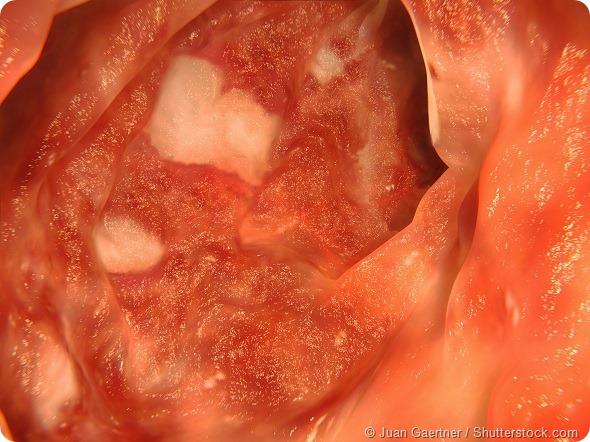Patients with ulcerative colitis (UC) may improve their symptoms with a transplantation of healthy stool from donors, according to Australian researchers. The findings were presented by Dr Sudarchan Paramsothy MD, a gastroenterologist from the University of New South Wales, Australia at the Digestive Disease Week conference in San Diego, California between the 21st to 24th May.

The scientists explained that treatment with fecal microbiota transplantation (FMT) had helped about one in four patients (27%) to reach the study goals of their symptoms disappearing and developing healthier digestive tracts confirmed by further observation through endoscopies.
In total, more than half of the patients experienced some improvements with their symptoms without taking any steroids. All of the patients were immune to steroid or anti-inflammatory treatment.
Current conventional therapies often have little or no impact on UC patients. For every 100,000 people, there are 200 with UC which is classed as one of the inflammatory bowel diseases (IBD). In the condition, ulcers develop on the lining of the rectum and colon.
This results in discomfort and inflammation for the patient. Sometimes they can suffer from rectal bleeding and diarrhea. FMT is a therapy traditionally used for patients who are experiencing bacterial infection from Clostridium difficile which can also affect the bowel, cause stomach pain, high temperature and diarrhea.
In recent years, researchers have gained a better understanding of the gut microbiota and the critical role it plays in health and disease, including conditions like ulcerative colitis,"
"By using fecal microbiota transplantation, we aim to treat the underlying cause of ulcerative colitis instead of just its symptoms, as opposed to the majority of therapies currently available."
Dr Sudarshan Paramsothy, MD.
The researchers had enrolled 81 patients in total with 41 of these taking the FMT and 40 having a placebo or a non-active treatment. Of the 41 patients using FMT, 11 met the goals of the study while only 3 of the 40 control patients did. When the researchers analysed how many patients felt an improvement without an examination of their colons, 44% reported better symptoms.
The scientists diagnosed the patients as having active UC by using the Mayo Scoring System for Assessment of Ulcerative Colitis. During the study, they were given the initial FMT or the placebo with a colonoscope, a long tube which has a camera at the end. This initial step was then followed with self-administered enemas for five days each week over a period of eight weeks.
Previous research in this area has been limited to small case series and two single center trials with conflicting outcomes. Our study is the first multi-centered trial that uses an intense therapy of FMT infusions, 40 over eight weeks, and has been able to show definitively that fecal microbiota transplantation is an effective treatment for ulcerative colitis,"
"This is important because there are millions of people worldwide seeking alternative treatments for their condition. This population is accustomed to using enemas as part of previous treatment, so our approach would not be unusual to them."
Dr Sudarshan Paramsothy, MD.
Donations of stool came from at least three different healthy donors to avoid there being a “donor effect” caused by the study only featuring one donor’s fecal matter. Each donor was screened for their own health prior to this. The stools were then prepared for use in the the FMT enemas.
Dr. Paramsothy’s research was funded by the Broad Medical Research Program at the Crohn's & Colitis Foundation of America, the Gastroenterological Society of Australia, and Mt Sinai Hospital New York (SUCCESS fund). Centre for Digestive Diseases in Sydney provided the study infusions. Faculty disclosures are available at https://ddw.org/.
References